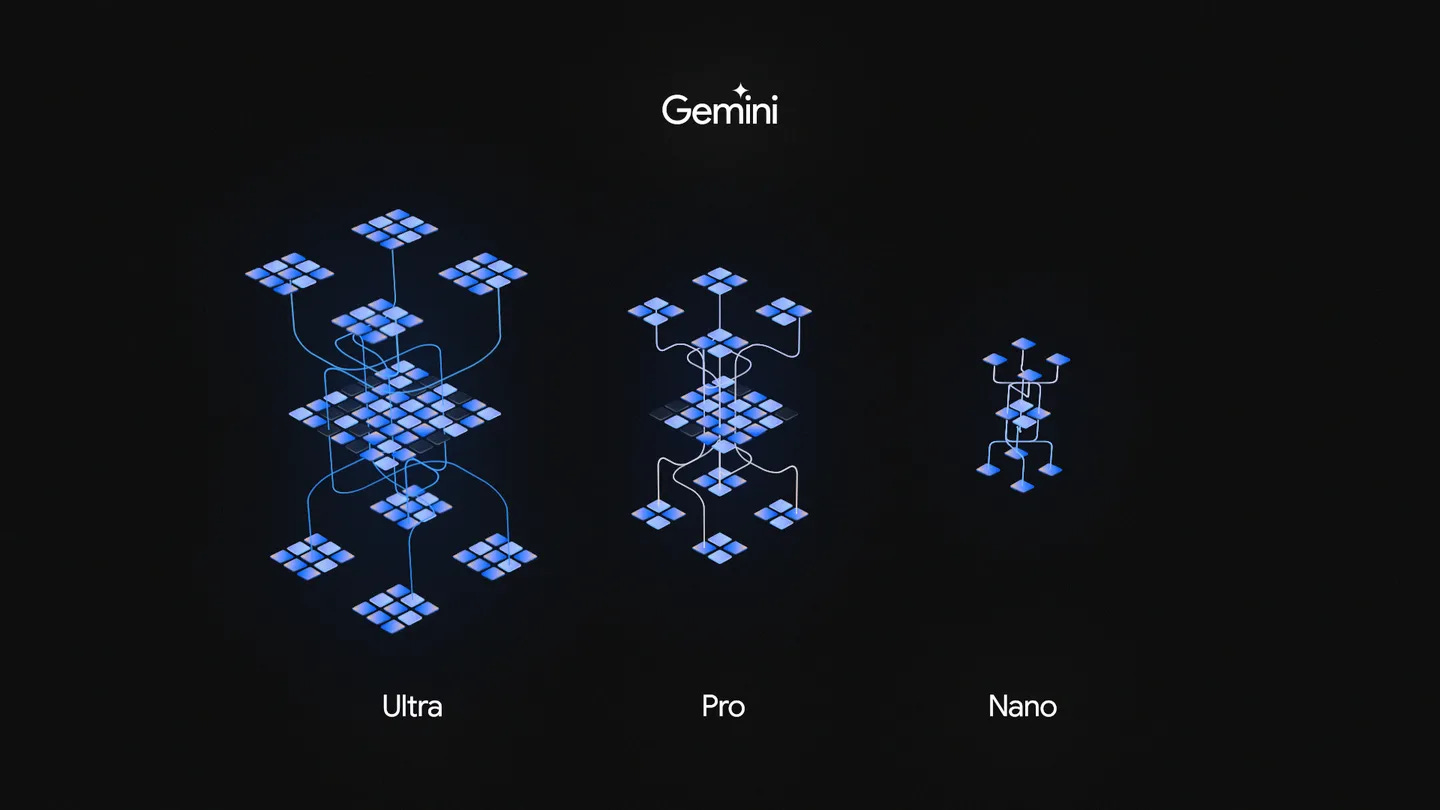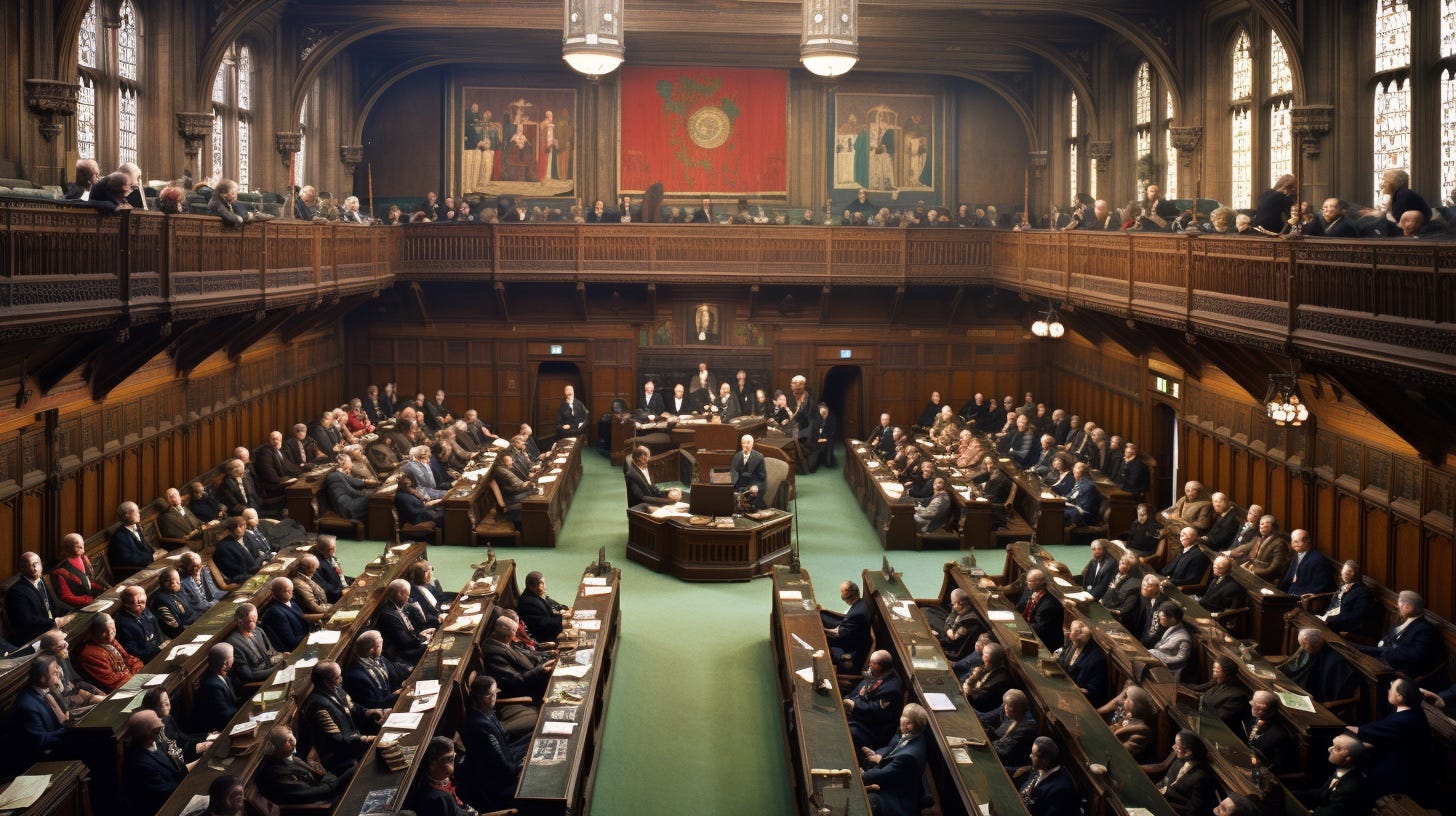AI Roundup 044: Google Gemini
December 8, 2023.
Google Gemini
At long last, after months of speculation, leaks, and delays - Google released Gemini, its state-of-the-art language model.
How it works:
Gemini comes in three tiers: Ultra, Pro and Nano. Pro is available today via Google Bard; Nano will be coming to Pixel 8 Pro smartphones; and Ultra will be slowly released to select partners next year.
Gemini is multi-modal, meaning it can work with both text and images. However, an extremely impressive demo has turned out to be a little too good to be true: editing magic turned image and text prompts into a real-time voice and video interaction.
Gemini is being very obviously marketed as better than OpenAI's GPT-4. But the benchmarks only show Gemini Ultra beating GPT-4 by a narrow margin, and Ultra isn't yet available to the public. I'd remain skeptical on whether GPT-4 has been dethroned just yet.
Speaking of OpenAI:
New documents show OpenAI agreed to buy $51 million of AI chips from a startup backed by CEO Sam Altman.
The New Yorker covers the inside story of Microsoft's partnership with OpenAI.
And former OpenAI board member Helen Toner shares her side of the story as Sam Altman is named Time's CEO of the year.
Meta's many models
Meta released a slew of new models, product features, and even a new trust and safety project named Purple Llama.
What to watch:
Seamless Communication, a suite of AI translation models that handle expressive speech and translation across multiple languages.
Imagine with Meta, an image-generator tool powered by the company's Emu model.
And new updates as Meta AI gets support for Reels, and WhatsApp/Messenger/Instagram get access to Meta's celebrity AI characters.
Elsewhere in the FAANG free-for-all:
The platform formerly known as Twitter rolled out Grok, its "snarky, anti-woke" chatbot to Premium+ users.
Microsoft is reportedly planning the next major Windows version for 2024, with a fully AI-powered OS experience.
And Apple joins the AI fray with a new framework designed to run ML models on its chips.
Politicians are worried about AI
Despite months of new AI summits and hearings, global policymakers are struggling to keep up with the speed of AI advancements, let alone craft meaningful legislation for them.
Why it matters:
Generative AI has triggered a fundamental technology shift that's causing disagreements on regulating AI, especially within the EU.
At best, new laws are fragmented and applied to one domain at a time - like a proposed labeling system for AI healthcare apps.
At worst, officials release vague guidelines emphasizing AI safety with zero action or concrete next steps.
Elsewhere in AI anxiety:
SAG-AFTRA members ratified the new studio contract, though some remain concerned about the use of AI in Hollywood.
After a new "Animate Anyone" model went viral, people are wondering if TikTokers are about to be automated.
And leaked documents show one AI platform's concerns that one of its customers, Civitai, was generating images that "could be categorized as child pornography."
Things happen
Anthropic's latest approach to fighting AI racism: ask really really really nicely. ChatGPT provides better answers if you pretend to give it a tip. How tech billionaires funded and fought over today's AI giants. The internet enabled mass surveillance, and AI will enable mass spying. How Big Tech funds the researchers supposedly holding it accountable. The end of business class AI doomerism. Runway ML partners with Getty Images on a new commercial video model. JetBrains AI. Guillaume Verdon, the man behind @BasedBeffJezos. The G7 agrees on comprehensive guidelines for generative AI. How to create an AI narrator for your life. A Q&A with OpenAI's COO. Nvidia is working on new chips that comply with US export regulations. Asking ChatGPT to repeat words "forever" is now a TOS violation. LLM visualization. OpenAI employees really did not want to go work for Microsoft. Nicki Minaj stans have build an AI-generated, sci-fi world. Sundar Pichai on Gemini and the coming age of AI. Getty lawsuit against Stability AI to go to trial in the UK.
Last week’s roundup
AI Roundup 043: Happy birthday, ChatGPT
Yesterday marked the 1-year anniversary of ChatGPT. Originally launched as a "low-key research preview,” nobody knew how big it would become.







Love the intel sharing, Charlie! Though I love AI, my research continues to demonstrate that we are running a course faster than we can truly manage the risks in play. It’s a virtual brilliant 8-year old child without the guardrails for the most part. Cheers and let me know if I can help the cause. 😃